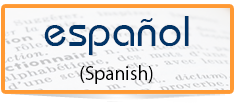
Spanish Superlatives

In Spanish, the comparative is used to express the relative value of two things. The superlative, however, makes no direct comparison. Instead, one thing is said to show some extreme, either good or bad, within its particular group. In English, we use expressions such as “the most important person,” “the least expensive car,” “the best friend,” and “the most talented player” to convey this idea. In Spanish, there are two patterns used to express such extremes:
- Article + (noun) + más/menos + adjective + (de)
Es el coche más grande de la compañía.
It is the company’s largest car.
Son los más caros.
They are the most expensive.
- Article + irregular comparative + noun (de).
Son las peores del grupo.
They are the worse of the group.
Es la major oferta que tenemos.
It is the best offer we have.
Note that the noun is optional. In addition, “de” is necessary only when the idea of “in” or “of” is being expressed.
The Absolute Superlative
The Spanish absolute superlative is equivalent to adding “very” to the beginning of an English superlative. It is formed by muy + adjective.
Es un precio muy malo.
It is a very bad price.
There is also an alternative form of the absolute superlative. This alternate form is made by adding the suffix –ísimo/–a/–os/–as to an adjective. If the adjective ends in a vowel, remove the final vowel before adding the suffix:
Caro: expensive
Carisímo: very expensive
Interesante: interesting
Interesantísimo: very interesting
Cordial: cordial
Cordialísimo: very cordial
Two exceptions exist when forming the alternative absolute superlative. First, when the final consonant before the vowel is “c,” the “c” changes to “qu”:
Rico: rich
Riquísimo: very rich
Second, when the final consonant in an adjective before the vowel is “g,” the “g” changes to “gu”:
Vago: vague
Vaguísimo: very vague

